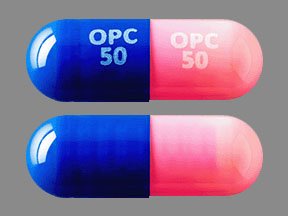Ongentys and Alcohol/Food Interactions
There are 2 alcohol/food/lifestyle interactions with Ongentys (opicapone).
Alcohol (Ethanol) Opicapone
Moderate Drug Interaction
Using opicapone together with ethanol (alcohol) may increase side effects such as dizziness, drowsiness, confusion, and difficulty concentrating. Some people may also experience impairment in thinking, judgment, and motor coordination. You should avoid or limit the use of alcohol while being treated with opicapone. Do not use more than the recommended dose of opicapone, and avoid driving, operating machinery, or engaging in potentially hazardous activities requiring mental alertness and motor coordination until you know how the medication affects you. Talk to your doctor if you have any questions or concerns. It is important to tell your doctor about all other medications you use, including vitamins and herbs. Do not stop using any medications without first talking to your doctor.
Opicapone Food/Lifestyle
Moderate Food Interaction
Food may delay and reduce the absorption of opicapone, which may lead to lower blood levels of the medication and possibly reduced effectiveness. You should take opicapone once daily at bedtime. Do not eat food for at least 1 hour before and at least 1 hour after taking opicapone. Talk to your doctor or pharmacist if you have any questions or concerns.
Switch to professional interaction data
Ongentys drug interactions
There are 277 drug interactions with Ongentys (opicapone).
Ongentys disease interactions
There are 6 disease interactions with Ongentys (opicapone) which include:
More about Ongentys (opicapone)
- Ongentys consumer information
- Check interactions
- Compare alternatives
- Pricing & coupons
- Drug images
- Side effects
- Dosage information
- During pregnancy
- FDA approval history
- Drug class: dopaminergic antiparkinsonism agents
- En español
Related treatment guides
Drug Interaction Classification
| Highly clinically significant. Avoid combinations; the risk of the interaction outweighs the benefit. | |
| Moderately clinically significant. Usually avoid combinations; use it only under special circumstances. | |
| Minimally clinically significant. Minimize risk; assess risk and consider an alternative drug, take steps to circumvent the interaction risk and/or institute a monitoring plan. | |
| No interaction information available. |
See also:
Further information
Always consult your healthcare provider to ensure the information displayed on this page applies to your personal circumstances.


